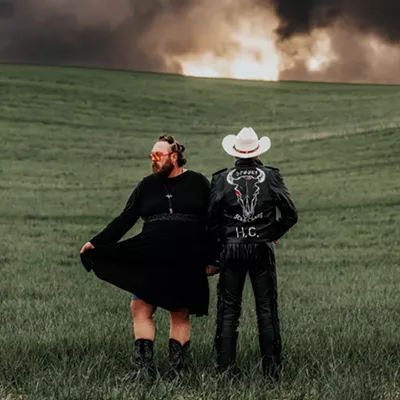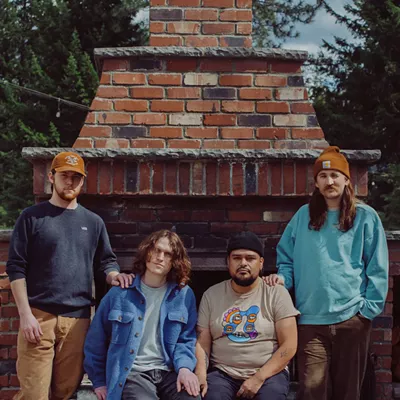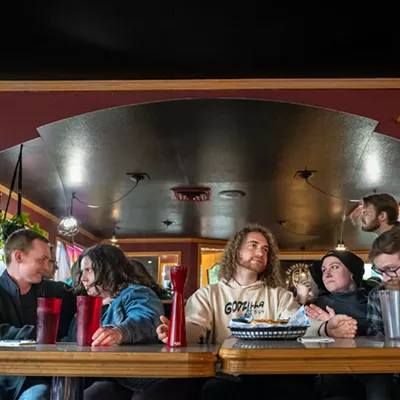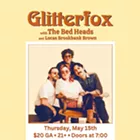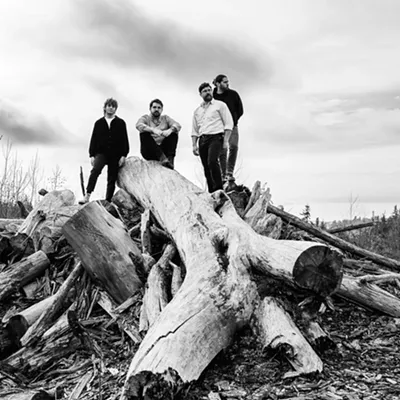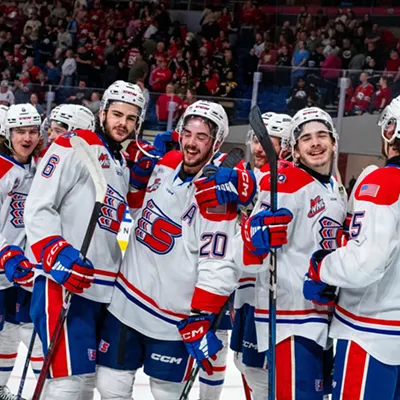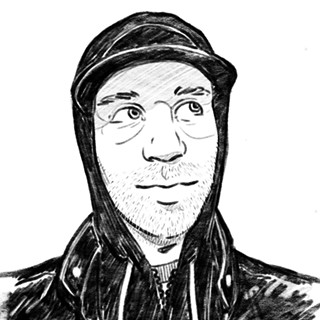Folk punk hits different in the UK.
And I mean that both sonically and on the charts.
Take England’s own Frank Turner, who just put out his 10th rabble-rousing collection of sing-along-while-you-mosh-along songs for the underdogs. The 42-year-old is renowned for his raucous live shows, nonstop touring schedule and songwriting chops that connect with his loyal fanbase on a devotee level. But he’s also a chart-topper in his homeland, as his last six albums have cracked the Top 3 of the UK charts, something that would be completely infeasible for Turner’s stateside folk punk peers.
That tally includes Turner’s new album, Undefeated. The first LP he’s self-produced, the record showcases that the singer’s rebel soul and tender heart hasn’t faded and that there are still plenty of more firebrand anthems in his proverbial chamber.
Before Turner plays the Knitting Factory on Sept. 1, we Zoomed with him to chat about the new album, D.B. Cooper and shedding toxic people.
INLANDER: What about the strong English spirit in your songs do you think transcends borders to also connect with fans over here in the States?
TURNER: Certainly one thing that pleasantly surprised me when I first started touring the States is that there is a section of America, particularly the American punk scene, that has this sort of Anglophilia thing going on. I mean, I love ’em, but Rancid singing “dial 999” in “Maxwell Murder”… that’s not gonna get you anywhere around here.
[Laughs]
But ultimately, lots of British people, myself included, are Bruce Springsteen fans. And Springsteen sings about New Jersey. The appeal is somebody singing with honesty and insight, often love about the place that they’re from. I think that’s the universal, really.
Yeah, I was gonna ask about the inverse — what about American music connects with you?
I think that I have a slight advantage in some ways, just in the sense that… I guess this has possibly changed for younger generations because of the internet, but certainly for me growing up and generations before me, it is impossible to overexaggerate to Americans how saturated in American culture you are growing up in England.
I mean, I know what a prom is. I don’t know anyone who’s ever had one. I know what “second base” means. I’ve never been anywhere near baseball in my life, you know? The cultural cues of America are just omnipresent in this country, so it’s not unusual to encounter those in the arts.
I mean, you look at The Rolling Stones, who are a bunch of people from southwest London who have been doing a quite bad Deep South American accent for 70 years. Whereas, by contrast, I feel like sort of British voices in America are comparatively rarer. So maybe I have a little bit of a head start on that.
Something I’ve encountered all the time is that people will buy me a Newcastle Brown Ale because I’m English, and I therefore love Newkie Brown. I cannot stand Newkie Brown. It is disgusting. It’s just like, ‘Cool, oh thanks for that. … Can I have a Bud Light?’
How’s the live reaction to the new songs from Undefeated been so far?
Ten albums in, I think that with every record I make, it takes a little longer for the new material to kind of seep into people’s consciousnesses. With every record there’s always some songs that you kind of know are going to land, and there are some surprises. “Nevermind the Back Problems” I knew was going to be a live favorite from the minute that I started writing it, and so it has proved to be. [Laughs] And “Do One” is a big singalong, and that’s great.
I mean, the broad thing to be said, of course, is that the fact that any of the new songs are getting received well by audiences is a wonderful relief 10 albums in.
So what keeps you such a relentlessly touring artist even 10 albums into things?
There’s a bunch of stuff going on. Part of it is that a turning point in my life was reading Get in the Van (by Henry Rollins) when I was about 15 years old. I read it as an instruction manual, and it set me on fire. I did my first tour less than a year later, which I booked myself from a pay phone in my school when I was 16 years old. And it was kind of a disaster, and I thought it was the greatest thing that ever happened, and I fell in love with it. So it is the great passion of my life, touring and playing shows.
I mean, if you want to get armchair psychologist about it, it’s not unlinked to the fact that I got sent away from home when I was 8 years old by my parents and haven’t felt enormously settled since then, to this day. So I like being on the move. It makes me feel like I’m making the most of my time, my limited time on this planet.
Since I’m Zooming you from Washington, I am legally required to ask what led to the Puget Sound shoutout on the new track “International Hide & Seek Champions”?
The song in question is not really about D.B. Cooper, but it’s broadly inspired by him. Like the great academic that I am, I watched a documentary on Netflix about D.B. Cooper, a story that I wasn’t especially familiar with, but Americans are. When I play that song in the UK and go, “Who knows who D.B. Cooper is?” like two people put their hands up.
Whereas play that song in Spokane, and everybody puts their hands up. This is our weird little history.
I mean, I did the whole record of historical songs called No Man’s Land five years ago. The thing that’s fun about writing about historical events is you slightly end up with this kind of bullet point list of things that have to get in the song at some point, which is different from the normal writing process. Like when I was writing a song about Dora Hand, who was a Vaudeville dancer from Dodge City in the 1870s, I was like, ‘I need to get up to 1876 by the end of verse two.”
It’s almost like putting a puzzle together where you have the pieces, as opposed to crafting every piece by hand on your own.
Exactly.
One of the lines on Undisputed that really struck me was on “No Thank You for the Music” where you sing, “I’ve returned to being an angry man.” What does angry old man Frank Turner look like in 2024?
I hope slightly better informed than I was 20 years ago. One would hope.
With that particular line, I think that when you’re a kid, you’re furious — well, I was furious — about everything. Then you have this moment of understanding that life is more complicated than you thought it was, and there are shades of gray, and indeed it’s important to try and inhabit other people’s perspectives, and so on and so on.
But there is a part of me that feels like it is possible to go too far down that road, and perhaps I did for a time in my life. Where you almost argue yourself out of having any opinions, because — particularly if you have a contrarian streak in character, which I unquestionably do — at a certain point you just sort of don’t really think anything about anything, because you can always see the inverse view. And therefore you don’t have any say in anything.
A lot of that line to me has to do with cutting people out of your life. The pandemic was an interesting moment for kind of thinning the herd a little bit socially, do you know what I mean? We’re all locked in our houses forever, and it was like, ‘Who am I gonna stay in touch with?’ And there’s a liberation in cutting toxic people out of your life.
Frank Turner & The Sleeping Souls, Bridge City Sinners, Bedouin Soundclash • Sun, Sept. 1 at 7 pm • $30 • All ages • Knitting Factory • 919 W. Sprague Ave. • sp.knittingfactory.com




